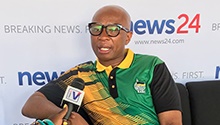The ANC has a new president, Cyril Ramaphosa, who will take over the country within a year and a half.
The party’s elective conference was dramatic in many ways.
But the whirlwind in the middle of the storm was President Jacob Zuma’s announcement last week of free higher education for the poor and working class.
This class is defined as those whose combined household income is less than R350 000 a year, or about R29 000 a month.
And then there will be no fee increase for students who come from households with less than a combined income of R600 000 a year, or R50 000 a month.
It will cost about R12.4bn a year to cover these proposals.
This is a Christmas present for the working class and the lower middle class.
If the government was a household, this would be a spending spree for that hard-earned 13th cheque.
Ongoing reactions to Zuma’s announcement are mixed. Hardly anyone disagrees with the objective of addressing inequalities through improving access to higher education – those who do are in the wrong country.
There are, however, strong disagreements on whether free higher education is feasible under current economic conditions, which are far from conducive to it.
In October, Finance Minister Malusi Gigaba lamented that the government was living beyond its means, and this would continue for at least two more years.
The economy has just come out of recession but economists have warned that slow growth will linger.
By October, the revenue shortfall was R50.8bn, the largest since 2009. By 2019 this shortfall is projected to be R209bn.
The budget deficit, according to Gigaba, will widen to 4.3% of GDP by the end of the 2017/18 financial year.
Gross national debt is projected to reach 61% of GDP by 2022, with debt-service costs approaching 15% of main budget revenue by 2020/21.
According to Zuma, the conversion of National Student Financial Aid Scheme loan packages to grants is effective immediately, and the provision of fully subsidised free education for the poor and working class at all public Technical and Vocational Education and Training colleges would start in 2018.
We would expect an urgent response from the Treasury in communicating the government’s game plan – at least so that the relevant stakeholders can know what to do administratively in a month or so before the first semester of 2018.
But the finance minister seems to have tried in vain to persuade his boss to hold the announcement until February during the delivery of the state of the nation address.
Thus the Treasury, which is supposed to explain where the funding will come from, was not consulted in any substantive way and only after the announcement is the government’s finance department busy processing the report.
This is a shoot first, aim later scenario.
Treasury’s problem is that extra spending should be based on economic growth, which must average 5.4% by 2030. The institution thus holds that economic growth is a precondition for delivery of social and economic transformation.
The post-1994 state realised this, which is why there was a turn to grow and redistribute rather than redistribute and then grow.
Zuma’s announcement takes us back to the redundant redistribution–growth debate of the 1990s and early 2000s.
The announcement does more than that. It hands over a ticking time bomb to the new administration – slow growth, students with high expectations, Treasury under pressure and bowl in hand for the International Monetary Fund (IMF).
This was where the ANC started in 1994, following the R90bn of foreign debt handed over by the apartheid government, high poverty levels and a frail economy.
Part of the high debt had resulted from the apartheid government’s conversion of its contributory pension system for employees in the public sector from one that effectively functioned as a pay-as-you-go scheme to a full government-funded scheme.
This was well timed to ensure that the post-apartheid state would be responsible for pension payouts of apartheid state employees.
In a similar way, although on a lesser scale, the timing of Zuma’s announcement just before the ANC elective conference masks a political agenda, of which we can only speculate, without sufficient knowledge.
Under current economic conditions, however, we can speculate the following.
The government will soon have at least four guns to its head:
- Slow growth;
- Students forcing the government to deliver on its promise of free higher education;
- A Treasury that has no revenue and is under pressure to find more; and
- The IMF demanding a reform package as a precondition for bailing the government out.
International financial institutions do not give out charity; they insist on conditions, as the Greeks learnt in 2015 when the troika (European Central Bank, IMF and European Commission) rejected the peoples’ referendum even after they had voted against rigid bailout conditions.
Reverting to the bomb analogy, it is up to Ramaphosa to detonate this bomb safely before it explodes on the face of Nelson Mandela’s country.
For the short and medium term, he will be on a constant emergency call with no time to look into state capture – or perhaps there could be a chance that he’ll heed Bathabile Dlamini’s call to forgive state capture culprits just like South Africans forgave apartheid culprits, whatever the logic.
Musyoka is a postdoctoral Fellow based at the Human Economy Programme at the Centre for the Advancement of Scholarship, University of Pretoria
































